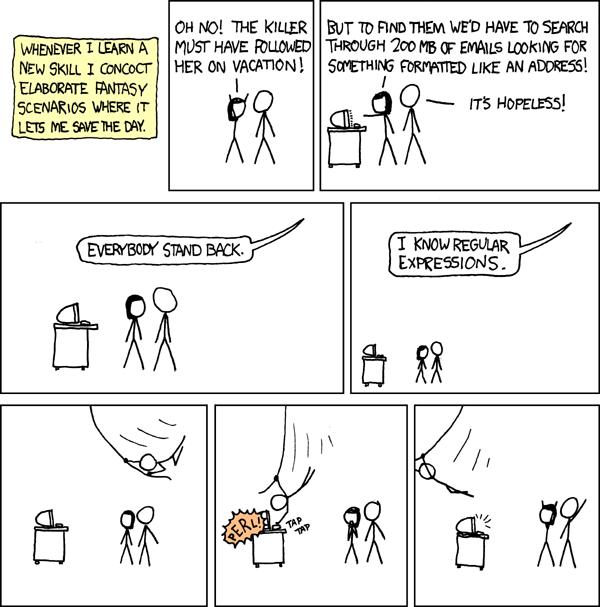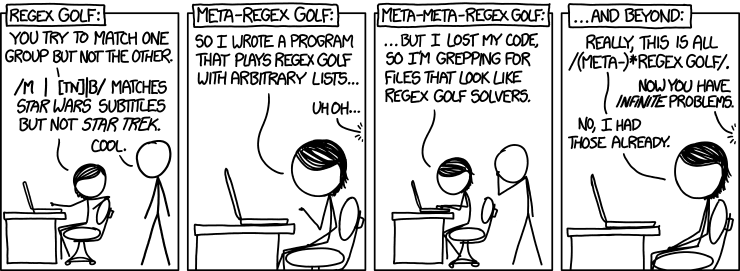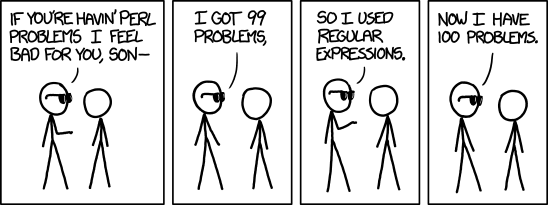Below are resources and references from my Regex Express talk.
Learning Resources
- RegExr: Interactive editor which visual signals matching, details on the matches, cheatsheet notes, ability to save favorite expressions.
- Rubular: A simple interactive editor that signals expression matches on a selection of text and is paired with visible quick reference.
- Rexegg: A full site of content dedicated to all things with regular expressions. This includes both basic to complex topics, making it a good resource for a large spectrum of learning.
- regular expressions 101: An interactive editor, that provides different regular expression syntax flavors, quizzes, library of expressions. Some features require you to login with some common service providers (Google, GitHub, Twitter).
- Regexper: Generates “railroad diagram” visuals of a supplied regular expression.
- iHateRegex: An interactive editor in its playground, visualizes pattern matching (similar to Regexper), allows you to search other regular expression patterns, and submit ones.
- Regex Learn: A site with a free 101 course, that guides through learning about regular expression where you are tested along the way. It includes other common resources like a cheatsheet and playground to test expressions on text.
- Regular Expressions for Regular Folk book: A full site with visual examples. The book itself is single page, which can make it easier for printing or saving to read later.
Games
- Regex Crossword: A great website with a variety of levels on regex crossword puzzles.
- Large Regex Crossword Puzzle example: This is a single large crossword puzzle.
- Regular Expression Crossword puzzle from BBC: Puzzle for Today entry that introduced a regular expression crossword puzzle.
Random
- AutoRegex: An online tool that allows you to use GPT-3 to generate regular expressions from plain English, as well as, explain an expression in English. Requires an account (can create one on their site or use the Google identity provider).
- Regex that only matches itself: Stack Exchange post that shares a regular expression which only matches itself.
- Representation of Events in Nerve Nets and Finite Automata (S.C. Kleene, December 15, 1951): Original paper by Steven Kleene which introduces the concept of regular events. This paper influenced the concept of regular expressions; however, reading this paper won’t teach much on regular expression syntax, but rather how the concept originated.
- Regular Expressions: Now You Have Two Problems: Popular blog post by Jeff Atwood about regular expressions, their power, and guidance on their use.
- RE2: a principled approach to regular expression matching: Blog post by Google on RE2, which is is based on automata theory and guarantees that searches complete in linear time with respect to the size of the input and in a fixed amount of stack space.
Humor



 thoughts
thoughts